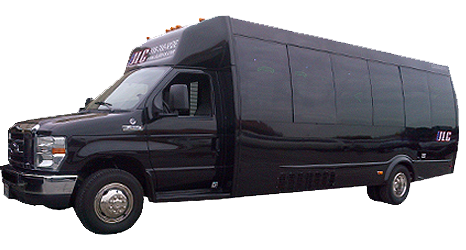
When renting a bounce house, you'll need to consider several factors, including the type of generator. There are several types of generators, including portable, electric, and gas. The size of the bouncehouse as well as its size will play a major role in choosing the right generator. A small commercial generator will work better for a medium-sized bouncehouse.
Portable
A portable bounce house generator must be purchased with care. Generators can be powered by propane, solar, or gas. While gas is cheaper to store and is easier to store, propane is much more expensive. Propane must be cleaned from the carburetor before being used. Generators that use solar power are not able to produce enough power so a bouncehouse cannot be powered.
You should also consider noise when purchasing a portable bouncehouse generator. A portable bounce house generator shouldn't make too much noise. However, it won't run the blower to inflate the bounce house. If it leaks, the blower may not work properly, leaving you with a damaged inflatable.

Gasoline
A gas-powered generator for a bounce house is a very popular option. They can be operated with gasoline, propane, or natural gases. Using gasoline is cheaper, and it can last up to a year. It is important to clean the carburetor thoroughly before you start using it. Propane is safer and lasts longer than gasoline. While solar generators may be an option, they do not have enough wattage to power a bouncehouse.
The fuel cost will vary depending on the wattage of the generator, but a 2000-watt unit will typically run for four hours. A generator with more fuel will run longer.
Electric
There are several options for powering your bounce house. There are several options to power your bouncehouse. You must ensure that gasoline is properly stored. Propane is cleaner and can be stored up to a year. You can also make use of solar power. However, you will need to ensure that you have enough stored solar energy.
In addition to supplying enough power, you'll need to pay attention to the noise level of your generator. The noise level of the generator should not cause too much distress to your children. You should keep the generator at the least one-foot distance from the bouncehouse. You may also need to use an extension cord.

DuroStar
A generator is required for powering a bounce-house. There are four common fuel sources for generators: gasoline, propane, natural gas, and solar power. Gasoline is the least expensive fuel option, but you must remember to keep the carburetor clean. Propane is cleaner. Although solar generators are an option, they can't produce enough power for a bounce house.
The DuroMax XP4400E is more powerful than the DuroStar DS4000S. With a 500cc OHV engine, this unit can produce up to 13,000 watts. The power panel has multiple outlets including two 120V household outlets and individual breakers. It can be used in all 50 U.S. states and lasts up to 8 hours on a full fuel tank.
FAQ
How do I do smart online shopping?
Smart shopping online allows you to save money and not compromise on quality. Here are some tips:
First, shop around. Compare prices to find the best deal.
Consider using Ebates, which is a cash-back app. They are similar to cashback program found in physical stores. Their app allows you to earn points based upon how much you spend. You can then redeem these points for gift cards, or discounts.
Third, you should look out for promo codes. These codes can be found on websites like RetailMeNot.com. Enter the code at checkout to get your savings. Your savings will appear automatically.
Don't forget clearance sections! Often times, you can find amazing deals on high end brands at discounted prices.
Do I need to worry about my privacy when I shop online?
It is important that consumers know the information they are sharing with companies like Amazon.com. Amazon.com should be asked if consumers want to share any personal information. If you do not want to give out this type of information, you may have to limit your shopping on sites where you feel comfortable sharing your private data.
Are rewards and insider programs worth the effort?
While rewards are wonderful, they may not be worth the effort. If you do decide that you want to join an online program you should make sure that there is value. Make sure you understand how much time and money you spend on it.
Be careful if you sign up for a reward card because of a great signup bonus. Sometimes these bonuses aren't worth the hassle of applying for one.
Before you join a rewards program, think about why you want it. Many times people join just because their friends are doing it. But if you have no interest in the products or services offered by the company, then you probably won't stick with it long enough to reap any rewards.
Statistics
- According to the Federal Trade Commission (FTC), online shopping was the fourth most common fraud category for consumers as of February 2022.5 (thebalance.com)
- The vast majority only change a password to protect privacy a few times a year (27 percent) or, more likely, never (35 percent). (pcmag.com)
- The tax is automatically added once you click the checkout button, so factor in an additional 20% when looking at the product page. (makeuseof.com)
- An approximately 90% increase in price affords Hotel X the opportunity of extreme profits under severe circumstances. (dos.ny.gov)
External Links
How To
How to shop safely online
Online shopping is one the easiest ways to purchase goods and services. This convenience comes at a cost. Online shopping has many advantages, but there are also risks. The biggest risk is identity theft. Identity theft is the greatest threat. Identity thieves steal your personal information (names, addresses and credit card numbers) in order to either steal money from you, or take out fraudulent loan against your name. They then make a profit by selling your stolen information on a black market. Here are some tips to help you keep your business online safe.
-
Secure websites are recommended. Most online stores offer free SSL encryption to protect customers' information. All information you enter on their website, including names, addresses, phone numbers and credit card details, is protected by SSL encryption so that only you can view it. It makes it impossible for anyone to read what you input. Check that the certificate has been issued by a recognized CA before you decide which online store you want to do business. When browsing, look for the padlock icon in the URL bar.
-
Your password should not be divulged. You will be asked to confirm your email address, username, and password when you sign up for a brand new account. These credentials should not be shared with anyone. Keep them safe! If someone takes your wallet, they may also have access to your accounts. Instead, save them on your personal computer. It is also recommended that you change your passwords at least once every three months.
-
Keep track and keep track of your orders. If you're sending items to yourself or others, make sure you keep track of where you send those packages. Many people fall for the trap of thinking they have sent something to them, but in reality it was sent from another place. Before you make payment for shipping, be sure to check the tracking number. Never ship anything without receiving proof of delivery. If you aren't satisfied with the service rendered, please contact the company right away.
-
Know who you're dealing with. Many websites ask you for sensitive information, including your full name, date and birth, Social Insurance Number, bank routing number, and social insurance number. They use these details to identify you so they should be cautious about what information they ask for. Google "what does the website need" if you aren't sure if it needs these details. There are many ways to find answers.
-
Be wary of pop-up windows. Pop-ups abound on many websites offering special offers, deals and other products. Some ads are legitimate but some are intended to trick users into divulging private information. For example, an anti-virus program may ask for your credit card number, bank information, and social insurance numbers. To avoid being tricked, don't click any suspicious links.
-
Phishing scams can be dangerous. Phishing scams involve hackers pretending to be from reputable businesses in order for consumers to hand over their financial details. Phishers often create emails that look like they come from banks or retailers, encouraging users to log in and update their account information. Once your financial information has been given, hackers can take control of your finances. Hackers can even empty out your bank accounts or transfer funds between different accounts. There are many resources available to help you spot phishing scams, such as How to Spot an Email Scam.
-
Do your homework. Before signing up for a deal, always read the fine print. The terms and conditions of any contract you agree to must be clear and easy to understand. Make sure to read all information and understand exactly what you're agreeing. It is important to avoid hidden fees or charges in order to save money.
-
Shop around. You shouldn't be afraid of shopping around. Compare prices across many different websites until you find the best price. Also, compare shipping costs when ordering multiple items. Shipping costs will vary depending on which website they are from. For expedited shipping, it is worth paying a bit more.